Artificial Intelligence & Machine Learning
Prominent Features
- Well qualified and experienced faculty in diversified domains.
- Nine computer centers with state-of-the-art-facilities.
- An Exclusive Department Library
- FAME The CSE – AIML Students Association.
- ANURAG-CSI Chapter
- The Department entered into MOUs with Infosys, TASK, Redhat, Microsoft, Co-Cubes,Oracle, IEG, Nucleus Vision LLC, Radiant Technologies, SAP, Birla Soft, Aspiring Minds, Globarena, NIS and Campus Classle & etc.,to provide high quality training in latest cutting edge technologies.
Overview
The department of CSE-AIML was established in 2022 with an intake of 60 students in the UG Programme. Right from its inception it is continuously striving to impart quality education and competitive spirit among students for academic excellence. The present intake in B. Tech (CSE-AIML) is 120.
The department is equipped with state of the art computing facilities and experienced staff members and is known for its academic excellence proved by its performances since its inception. The Department also has audio-visual facilities with LCD Projectors and Digital Boards and Seminar Hall for effective teaching. The staff members are deputed to participate in workshops, Conferences and refreshers courses to keep in place with recent developments in the field of Computer Science & Engineering.
Apart from the regular academic work, the department organizes guest lectures, seminars, workshops by inviting domain experts from industry and other reputed academic institutions.
Programs
Intake – 120
Core Competencies
- Machine Learning
- Mobile Computing
- Expert Systems
- Big data Analytics
- Deep Learning
- Natural Language Processing
- FOSSEE
Mou’s
Outcome Based Education
PEO's
PEO2: Graduates will have the skills they need for a successful career in AI and related fields that meet the needs of the country and businesses.
PEO3: Graduates will function effectively in workplace with demonstrable attributes like leadership, lifelong learning, and teamwork in order to meet the requirements of society.
PSO's
PSO2: Ability to apply technical knowledge and usage of modern tools related to AI and ML for solving real world problems.
PO's
PO1: Engineering knowledge: Apply the knowledge of mathematics, science, engineering fundamentals, and an engineering specialization to the solution of complex engineering problems.
PO2: Problem analysis: Identify, formulate, review research literature, and analyse complex engineering problems reaching substantiated conclusions using first principles of mathematics, natural sciences, and engineering sciences.
PO3:Design/development of solutions: Design solutions for complex engineering problems and design system components or processes that meet the specified needs with appropriate consideration for the public health and safety, and the cultural, societal, and environmental considerations.
PO4: Conduct investigations of complex problems: Use research-based knowledge and research methods including design of experiments, analysis and interpretation of data, and synthesis of the information to provide valid conclusions.
PO5: Modern tool usage: Create, select, and apply appropriate techniques, resources, and modern engineering and IT tools including prediction and modelling to complex engineering activities with an understanding of the limitations.
PO6: The engineer and society: Apply reasoning informed by the contextual knowledge to assess societal, health, safety, legal and cultural issues and the consequent responsibilities relevant to the professional engineering practice.
PO7: Environment and sustainability: Understand the impact of the professional engineering solutions in societal and environmental contexts, and demonstrate the knowledge of, and need for sustainable development.
PO8: Ethics: Apply ethical principles and commit to professional ethics and responsibilities and norms of the engineering practice.
PO9: Individual and team work: Function effectively as an individual, and as a member or leader in diverse teams, and in multidisciplinary settings.
PO10: Communication: Communicate effectively on complex engineering activities with the engineering community and with society at large, such as, being able to comprehend and write effective reports and design documentation, make effective presentations, and give and receive clear instructions.
PO11: Project management and finance: Demonstrate knowledge and understanding of the engineering and management principles and apply these to one’s own work, as a member and leader in a team, to manage projects and in multidisciplinary environments.
PO12: Life-long learning: Recognize the need for, and have the preparation and ability to engage in independent and life-long learning in the broadest context of technological change.
Long Term Goals:
- To encourage research activities in the department. To establish centre-of-excellence for research in Artificial Intelligence and Machine Learning.
- To establish and strengthen Industry-Institute interaction and be industry solution providers.
- To take up sponsored projects from private and government organizations.
- To have more number of publications and patents in the emerging areas of Artificial Intelligence and Machine Learning.
- To create better entrepreneurs in the area of Artificial Intelligence and Machine Learning.
Short Term Goals:
- To improve the department’s human resources and infrastructure.
- To frequently carry out skill-enhancing faculty development activities.
- To run programmes that help students develop their hard and soft skills as well as their leadership potential, curiosity, and technical proficiency.
- To conduct conferences, workshops, and continuing education programmes to share information with the outside world.
- To increase students’ academic performance through the use of cutting-edge and creative teaching techniques.
Vision
Mission
- To train the students to have in-depth knowledge of the subjects in the field of Computer Science and Engineering
- To train the students with leadership qualities, team work skills, commitment and ethics thereby making them develop confidence for R & D activities and for placement in multinational and national.
Quality Policy
Life@Dept
Facilities
ICT Facility
Information Communication Technology (ICT) has the potential to transform the nature and process of teaching and learning environment / culture. Interactivity, flexibility, and convenience in an ICT supported environment enable both teachers and students to access and share ideas and information in diverse communication styles and formats. Class rooms are equipped with smart boards & LCD projectors to enhance ICT enabled teaching and learning.
Benefits with ICT enabled teaching:
- Improves student-teacher collaboration and interaction
- Encourages teachers to teach in real-time with audio and video lessons, visual multimedia & PPT presentations, 2D & 3D virtual space, etc.
- Paperless advantages
- Enhances Real-time blended teaching and learning methods
- Creates Web and Internet-based teaching and learning platform for teacher and students respectively
- Facilitates mobile integration facility.
- The implementation of ICT in OBE can effectively accomplish the goals of quality education which is a process that reduces consumption of resources and increases learning outcomes.
Department Library
The Department Library occupies a unique place in academic and research activities of the Department. The Library maintains an excellent collection of data books, occasional papers and other documents/materials. The Library has a well equipped facility for reading. It also has one copy each of all B.Tech n & M.Tech projects carried out in the department in recent years. All these cater to the needs of students and faculty. Most of the books are of recent edition with the facility of issuing these for a specified time period. The library serves to provide a calm and comfortable ambience conductive to long hours of study. The library opens on all working days of the Institute from 9 AM to 4:30 PM.
Wi-Fi facility
The entire campus is Wi-Fi enabled with high speed internet connection to allow the students to access the internet no-matter wherever they are. The coverage is not just limited to the classrooms; instead it extends to all the facilities within the campus premises. Staff and Students can utilize the Wi-Fi Facility by registering their devices for the active usage of the facility.
Activities
Achievements
Faculty Achievements
- Y Laxmi Prasanna 16-11-2019 Completed Python for Data Science Course in Swayam
- Y Laxmi Prasanna 08-06-2020 Completed AI for Every one Course in Coursera
Professional Bodies
- Indian Society for Technical Education
- Computer Science Teacher Association
- International Association of Engineers
- South Asia Institute of Science and Engineering
Clubs
- Falcon AI
- Inspirational Cafe
Resources
Teaching & Learning
Innovative Teaching Techniques
Teaching is an art and science. Teaching is a process of imparting knowledge and skills. It is a
systematic process based on some educational objectives to communicate.
The following innovative teaching methods are being adopted:
Interactive Learning
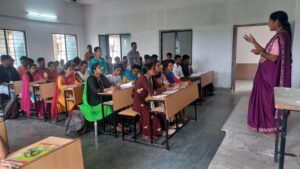
Interactive Learning is a pedagogical approach that incorporates social networking and urban computing into course design and delivery. Interactive Learning has evolved Interactive out of the hyper-growth in the use of digital technology and virtual communication, particularly by students
Interactive learning is a hands-on, real-world approach to education. ‘Interactive learning actively engages the students in wrestling with the material. It reinvigorates the classroom for both students and faculty. Lectures are changed into discussions, and students and teachers become partners in the journey of knowledge acquisition.’
Interactive learning can take many different forms. Students strengthen their critical thinking and problem-solving skills using a much more holistic approach to learning. Interactive learning can take place across the curriculum with technology.
Benefits of Interactive Learning:
- Engaging content
- Saves cost and time
- Flexible learning
- Teachers can make use of interactive learning tools
Collaborative Learning
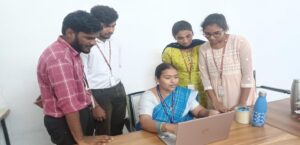
“Collaborative learning is an umbrella term for a variety of educational approaches involving joint intellectual effort by students, or students and teachers together. Usually students are working in groups of two or more, mutually searching for understanding, solutions or meanings, or creating a product.
Collaborative learning activities vary widely, but most center on students’ exploration or application of the course material, not simply the teacher’s presentation or explication of it”.
The benefits of collaborative learning:
- Development of higher-level thinking, oral communication, self-management, and leadership skills.
- Promotion of student-faculty interaction.
- Increase in student retention, self-esteem, and responsibility.
- Exposure to and an increase in understanding of diverse perspectives.
Flipped Classroom
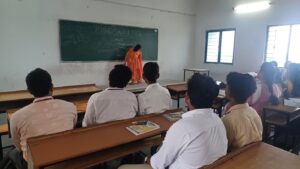 A flipped classroom is an instructional strategy and a type of blended learning that reverses the traditional learning environment by delivering instructional content, often online, outside of the classroom.
A flipped classroom is an instructional strategy and a type of blended learning that reverses the traditional learning environment by delivering instructional content, often online, outside of the classroom.
Flipped Learning shifts the classroom from passive to active learning, focusing on higher order thinking skills such as evaluating, analyzing, and creating to engage students in learning. The approach relies on understanding the difference between information and knowledge acquisition, providing students with active learning possibilities.
Students are given opportunities to take greater responsibility for their own learning. Class time focuses more on exploration, finding meaning and application of knowledge. Teaching is focused more on providing significant learning opportunities, providing feedback through a variety of pedagogical strategies and ensuring understanding
The benefits of flipped learning:
- More one-to-one time between teacher and student more one-to-one time between teacher and student
- More collaboration time for students
- Students learn at their own pace
- It encourages students to come to class prepared
- Practical things – like missing class due to illness – become less problematic
- Subject matter content becomes infinitely richer
- It’s cost-effective!
Role Play
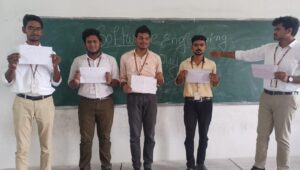
Role play in the classroom is a form of instruction in which you have students take the part of someone else so that they can understand a situation from a different perspective than they normally would.
The benefits of Role Play learning:
● It’s Social and Communal
● Prepares for Real Life
● Indicates Current Skill Level
Think-Pair-Share
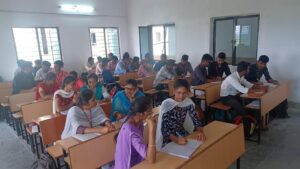
Think-Pair-Share (TPS) is a collaborative learning strategy in which students work together to solve a problem or answer a question about an assigned reading. This technique requires students to (1) think individually about a topic or answer to a question; and (2) share ideas with classmates. Discussing an answer with a partner serves to maximize participation, focus attention and engage students in comprehending the reading material.
Benefits:
- The Think-Pair-Share strategy is a versatile and simple technique for improving students’ reading comprehension.
- It gives students time to think about an answer and activates prior knowledge.
- TPS enhances students’ oral communication skills as they discuss their ideas with one another.
- This strategy helps students become active participants in learning and can include writing as a way of organizing thoughts generated from discussions.
Case Based Learning
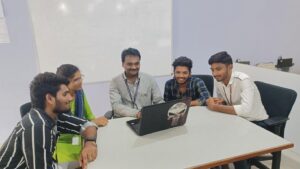
This method is learner-centered with intense interaction between participants as they build their knowledge and work together as a group to examine the case
The instructor’s role is to facilitate the students collaboratively analyze and address problems and resolve questions.
The benefits of Case Based learning:
- More focusing on learning objectives
- Flexibility on the use of the case,
- Ability to induce a deeper level of learning
Cooperative learning
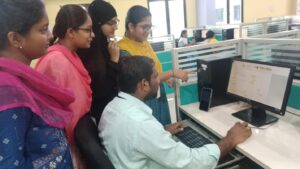
Cooperative learning is the process of breaking a classroom of students into small groups so they can discover a new concept together and help each other learn. The core element of cooperative learning is to showcase the positive effects of interdependence while underlining the importance of personal responsibility.
This happens naturally in cooperative learning since students work with one another, but they all have a different task to accomplish or concept to explain.
5 Elements of cooperative learning
● Positive interdependence
● Face-to-face interaction
● Individual and group accountability
● Interpersonal and small group skills
● Group processing
The benefits of Cooperative learning:
● Higher achievement.
● Increased retention.
● More positive relationships and a wider circle of friends.
● Greater intrinsic motivation.
● Higher self-esteem.
● Greater social support.
● More on-task behavior.
● Better attitudes toward teachers
Game-based learning
The benefits of Game-based learning:
● Increases Child’s Memory Capacity.
● Computer & Simulation Fluency.
● Helps With Fast Strategic Thinking & Problem-Solving.
● Develops Hand-Eye Coordination.
● Specifically For Children with Attention Disorders.
● Skill-Building.
Learning by doing
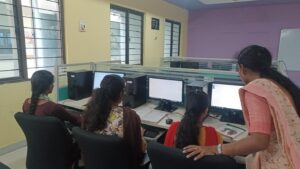
Learning by doing refers to a theory of education expounded by American philosopher John Dewey. It’s a hands-on approach to learning, meaning students must interact with their environment in order to adapt and learn.
The benefits of Learning by doing:
● Experiential learning is engaging and sticks
● Experiential learning is personal
● Experiential learning is community-connected
● Experiential learning builds success skills.
● Experiential learning is integrated
Project Based Learning
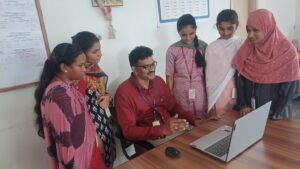
Project Based Learning is a teaching method in which students gain knowledge and skills by working for an extended period of time to investigate and respond to an authentic, engaging, and complex question, problem, or challenge.
The benefits of Project-Based Learning:
● Collaboration
● Problem Solving
● Creativity
● In-Depth Understanding
● Self-Confidence
● Critical Thinking
● Project Management
● Curiosity
● Empowerment
Open Educational Resources
Open educational resources (OER) are freely accessible, openly licensed documents and media that are useful for teaching, learning, and research resources that reside in the public domain or have been released under an intellectual property license that permits their free use and re-purposing by others.
Open educational resources include full courses, course materials, modules, textbooks, streaming videos, tests, software, and any other tools, materials, or techniques used to support access to knowledge.
Like Blog, MOOC(Massive Open Online Course), Moodle etc.
Teaching & Learning methodologies
|
Faculty Name |
Topic |
Course Title |
Approach used |
Year |
|
Y Laxmi Prasanna |
Process Scheduling Algorithms |
Operating Systems |
Case-Based Learning |
2023-2024 |
|
Y Laxmi Prasanna |
Sorting Algorithms |
Programming for Problem Solving |
Think-Pair-Share |
2022-2023 |
Laboratories
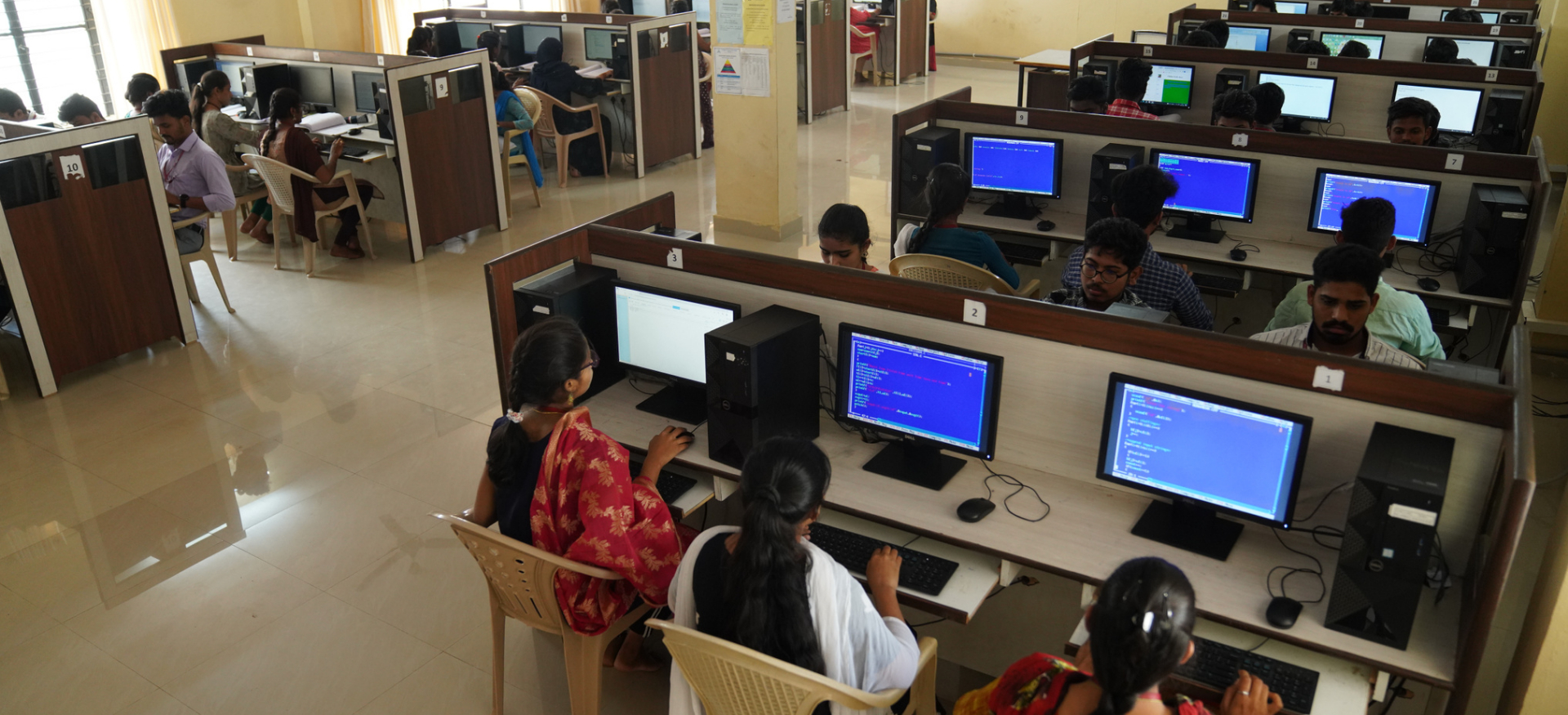
Programming for Problem Solving Laboratory (CS109ES)
Course Outcomes: Upon the successful completion of this course, the student will be able to:
- Apply fundamental programming concepts and Exercise control statements to solve simple problems.
- Represent and manipulate data with arrays and strings
- Modularize the code with functions so that they can be reused.
- Develop applications using user defined data types
Implement various searching and sorting techniques
List of Experiments
Python Programming Laboratory (CS207ES)
Course Outcomes:Upon the successful completion of this course, the student will be able to:
- Able to develop programs using control statements.
- Able to code programs using modular approach.
- Read and write data from/to files in Python Programs
- To write GUI program to create window wizard using various buttons.
- Implement digital systems using python and to install and use various libraries.
IT Workshop
Course Outcomes:
Data Structures Laboratory (CS306PC)
Course Outcomes: Upon the successful completion of this course, the student will be able to:
- Ability to develop C programs for computing and real-life applications using basic elements like control statements, functions, pointers and structures and various linked lists.
- Ability to develop data structures like stacks and queues using arrays and pointers.
- Ability to implements the sorting methods like Quick sort, Heap sort and Merge sort.
- Ability to implement various trees and tree traversal techniques in recursive and non-recursive manner.
- Gain knowledge on implementing the graph traversal techniques and Pattern matching algorithms like Boyer- Moore, Knuth-Morris-Pratt
Operating Systems Laboratory (AM307PC)
Course Outcomes: Upon the successful completion of this course, the student will be able to:
- Simulate and implement operating system concepts such as scheduling,
- Able to implement C programs using Unix system calls
- Implement the dead lock avoidance using banker’s algorithm
- Implement the producer and consumer problem and Page Replacement algorithms
- Exercise inter-process communication.
Software Engineering Laboratory (AM308PC)
Course Outcomes: Upon the successful completion of this course, the student will be able to:
- Understand and analyse problem domain of the applications
- Create software requirements documents for the applications to be developed
- Define software design documents for applications to be developed
- Build various models to represent software design using modeling tools
- Design different types of test cases to test the applications
Database Management Systems Laboratory (CS407PC)
Course Outcomes: Upon the successful completion of this course, the student will be able to:
- Develop ER data model and Relational data model for a database.
- Design database schema for a given application and apply normalization.
- Apply SQL commands for data definition and data manipulation.
- Apply the basics of SQL for retrieval and management of data.
- Develop solutions for database applications using procedures, cursors and triggers.
List of Lab Experiments
Java Programming Laboratory (AM408PC)
Course Outcomes: Upon the successful completion of this course, the student will be able to:
- Able to write programs for solving real world problems using the java collection framework.
- Able to write programs using abstract classes.
- Able to write multithreaded programs.
- Able to write programs for solving real world problems using the java collection framework.
- Able to write GUI programs using swing controls in Java.
List of Lab Experiments
Curriculum
Syllabus
Course Structure
The course structure refers to the choice of topics and the organization and sequencing of course content.
Question Bank
Question bank is a planned library of test items designed to fulfil certain predetermined purposes.
Placements
Research & Development
Overview
The Department has Exclusive R&D cell for providing various opportunities for enhancing the research and innovative skills of Faculty and students
Objectives :
1. To organize various workshops/ seminar on Writing of research articles, filing patents , writing books and improve the quality of publications
2. To prove awareness on collaborative research
3. Organize Conferences for providing platform to share knowledge in the recent trends
